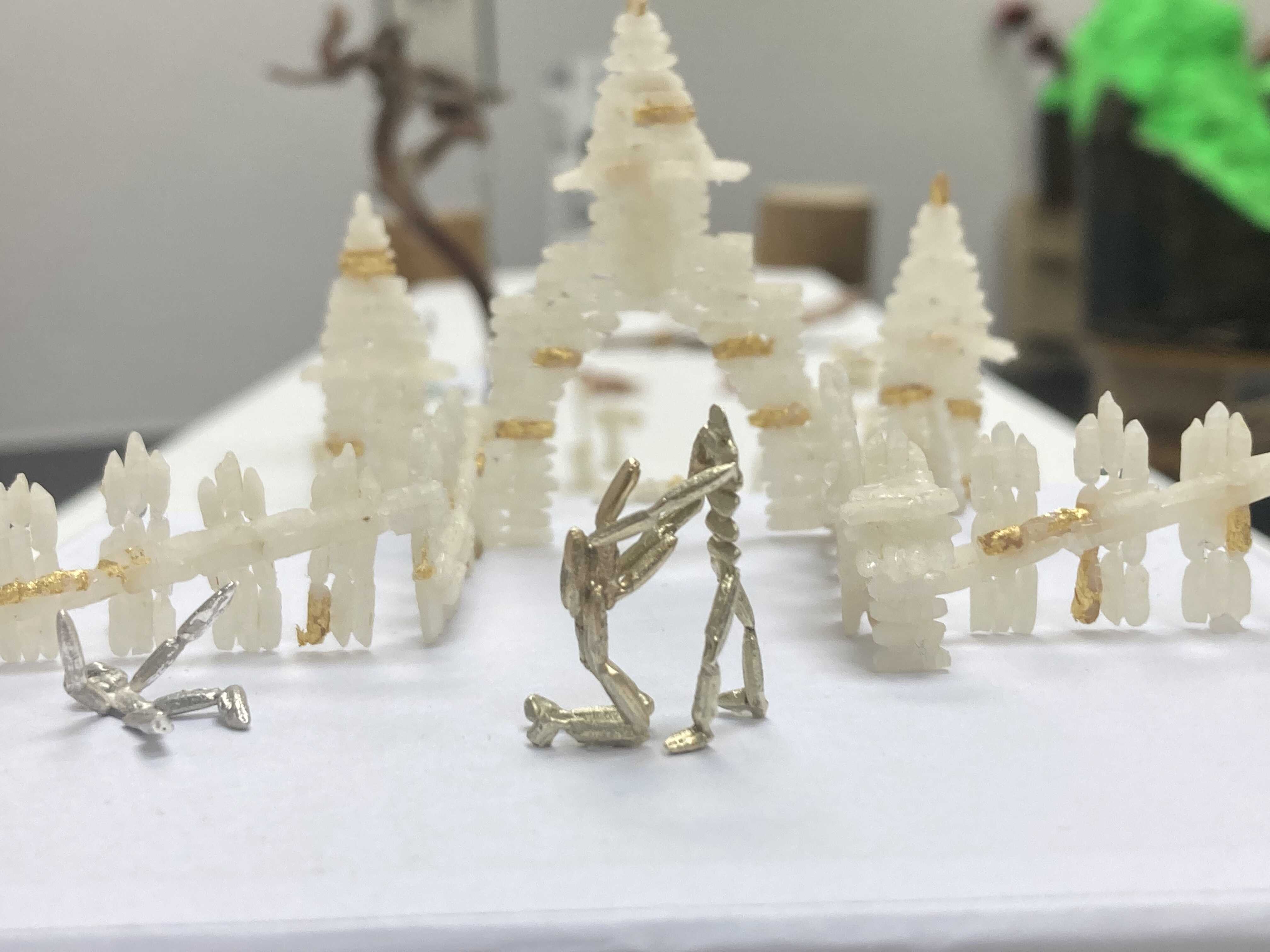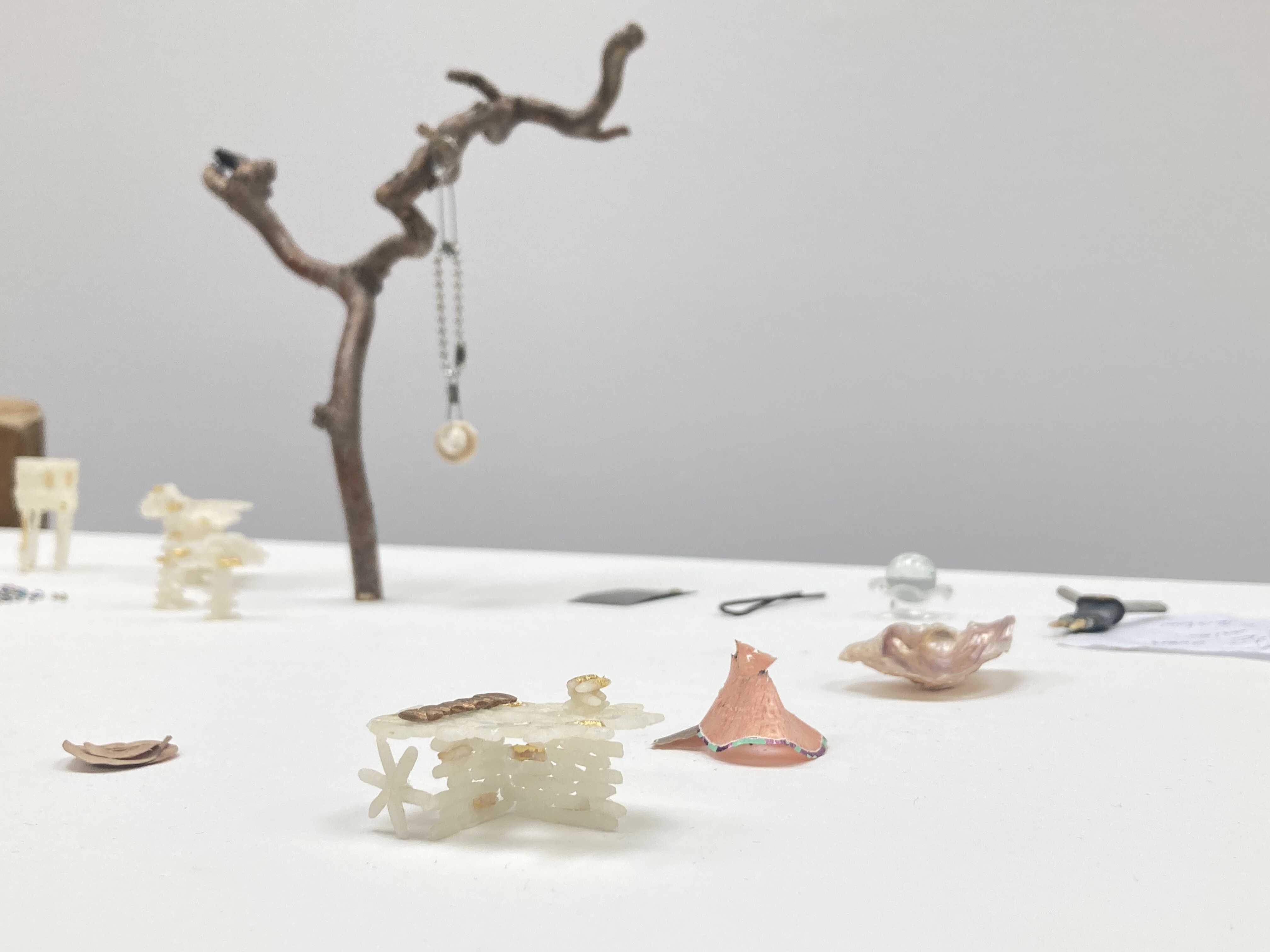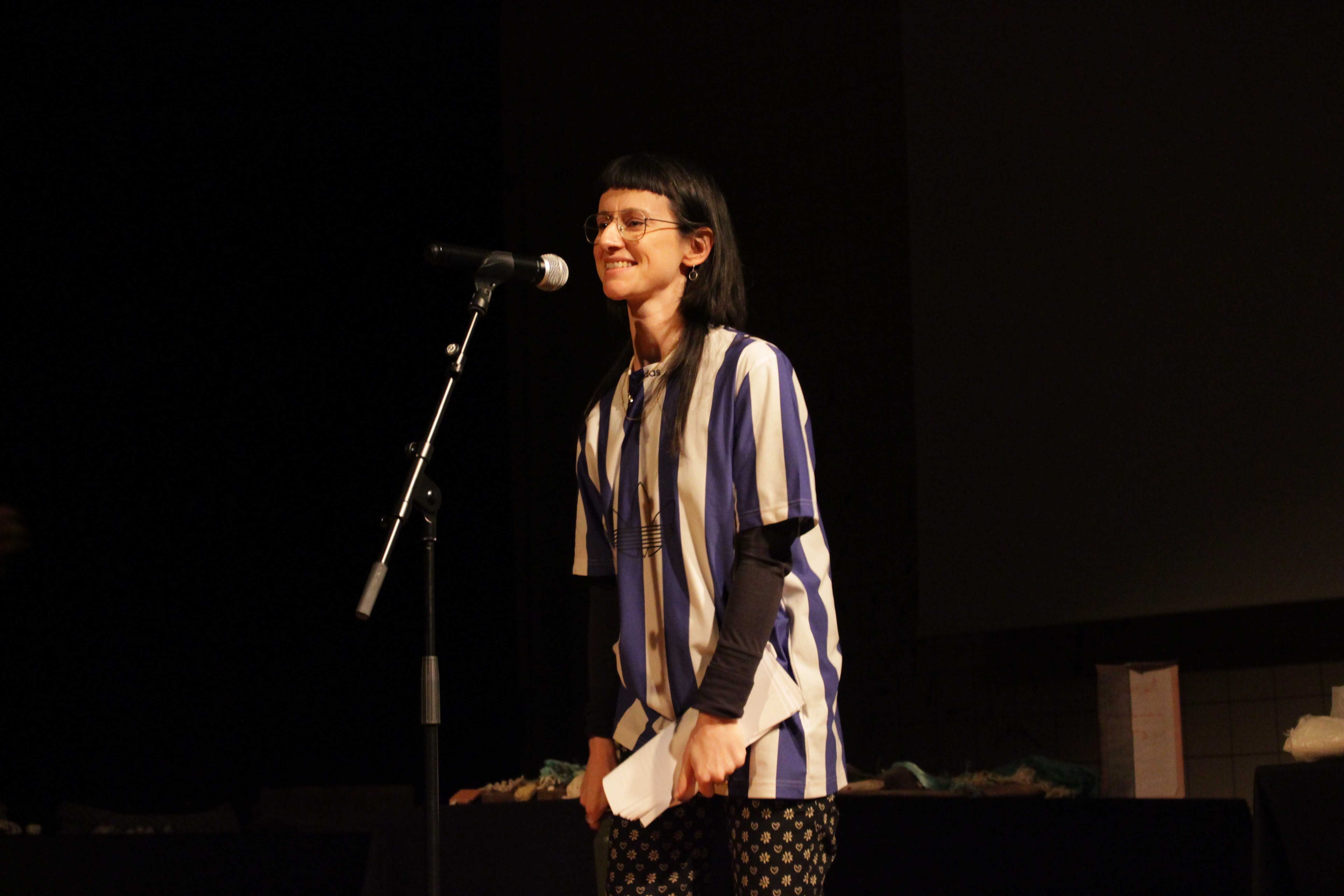The exhibition UNRULY KINSHIPS presents various temporal and spatial imaginations, disorientations and understandings of kin-relations. They prompt us to imagine the present and the future differently, to envision a world in which solidarity, interdependence and other forms of intimate association and belonging coexist, one where we can make space and time to see one another in our abundance. Apart from alum Clementine Edwards (DAI, 2018) UNRULY KINSHIPS features a bunch of current and former DAI-tutors: Yin Aiwen, Pauline Curnier Jardin, Geo Wyex and Rory Pilgrim. Curated by Kris Dittel and Aneta Rostkowska at CCA Temporary Gallery in Cologne. 4 February – 30 April 2023
Kinships are often thought of as blood relations, even more often understood with reference to the Western model of the nuclear family. This exhibition aims instead to contemplate and envisage various implications and forms of kinship, camaraderie, comradeship and belonging outside of the social reproduction of norms that the nuclear family entails.
The curators believe that kinship is not given, it is to be imagined and made. And this process of kin-making involves a critical revision of the promises and fantasies of the nuclear family, as well as a collective search for new possibilities and structures that are yet to emerge. The starting point of this exhibition project grew out of personal interests and experiences, in search of a variety of ways of establishing care and love relations and to imagine other kinds of sociability than the nuclear family structure.
Unruly Kinships reckons with the fact that no ideal version of kinship exists, there is no blueprint which relations can be modelled upon. And yet it strives towards perspectives and approaches that anticipate new solidarities, affinities and alliances, ones in which freedom in love and self-determination can be attainable for everyone. It is a leap into the unknown. How about then imagining collectively other forms of kinship? The unruly ones – not subjected to the imposed societal orders? Those which do not submit to known ways of living? They are disobedient, riotous, resourceful. How about reimagining kinship and asking again: How would we like to live? How would you like to live? The endeavour contemplates various possibilities of kin-making and care relations in our contemporary society. It presents various ways we relate to each other and the unexplored potentialities of these relations, starting from everyday interactions to artistic genealogies and queer lineages.


